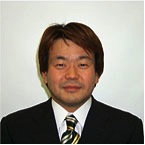Greeting from the program director
 We all want to understand nature in more depth. An insatiable interest in the unknown has brought us never-ending improvements to our measurement techniques, and has made it possible for us to obtain large quantities of high-dimensional data. Furthermore, new research fields such as bioinformatics are being created one after another by applying knowledge from information science and technology to various other fields in order to extract information efficiently from data, and this has led to the theory of a paradigm shift towards data centric science.
We all want to understand nature in more depth. An insatiable interest in the unknown has brought us never-ending improvements to our measurement techniques, and has made it possible for us to obtain large quantities of high-dimensional data. Furthermore, new research fields such as bioinformatics are being created one after another by applying knowledge from information science and technology to various other fields in order to extract information efficiently from data, and this has led to the theory of a paradigm shift towards data centric science.
We believe that discussing data centric science from a general perspective has the following benefits: Situations have been encountered where high-dimensional data analysis methods used in the field of astronomy also work effectively in the life sciences where they must operate at completely different scales (Science, Feb. 11, 2011). In this way, the introduction of diverse viewpoints becomes a driving force behind innovative developments in various different situations. Furthermore, a general viewpoint offers deeper insights into analogies and generalizations across fields as disparate as astronomy and life sciences, and as a result it leads to the evolution of new analysis methods based on these basic principles.
To exploit these benefits, it is important to combine the fields of experimentation, measurement and information science. We have chosen sparse modeling - which has attracted considerable attention in recent years - as a technology for constructing this methodology. In this program, we aim to create a new scientific field - high-dimensional data-driven science - that can efficiently derive new scientific knowledge from large amounts of high-dimensional data through close collaboration between information scientists who are achieving remarkable results by sparse modeling and high-dimensional data analysis, and researchers who are using sparse modeling as a key technology for tests and measurements in a wide range of natural sciences.
Professor Masato Okada,
(Graduate School of Frontier Sciences, The University of Tokyo)